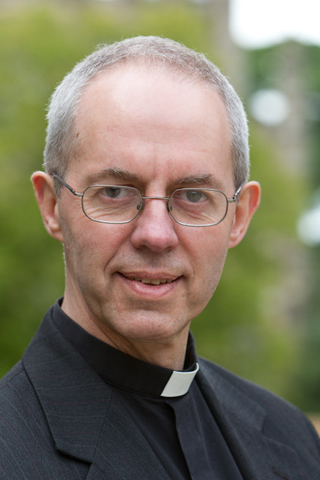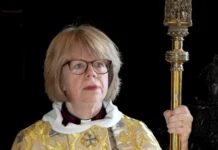Archbishop Welby has written to ecumenical partners about the General Synod’s decision to allow women to become bishops, emphasising that churches “need each other”.
This comes to you with warm Christian greetings and the wish to communicate personally to you the decision of the General Synod of the Church of England to admit women to the episcopate.
This is an occasion of deep rejoicing for many, especially for many of the women clergy in the Church of England. They feel that this decision affirms their place and ministry in the life of the Church. For others in the Church of England, the decision may be a source of disappointment and concern.
As the Synod moved towards the decision many were struck by the spirit of the debate: frankness, passion and, I am glad to say, a good deal of Christian charity. It all indicated an intention and sincere assurance to hold all of us together in one Church. There appeared a determination that the genuinely held differences on the issue of the ordination of women to the episcopate should not become a dividing factor in the Church of England, and there was care and expressions of love for those troubled by the outcome.
The Bishops have sought to build trust across the Church. The five principles outlined by them in their declaration form part of the package approved. Principles 3 and 4 are ecumenically relevant.
I give below these principles:
1. Now that legislation has been passed to enable women to become bishops the Church of England is fully and unequivocally committed to all orders of ministry being open equally to all, without reference to gender, and holds that those whom it has duly ordained and appointed to office are the true and lawful holders of the office which they occupy and thus deserve due respect and canonical obedience;
2. Anyone who ministers within the Church of England must be prepared to acknowledge that the Church of England has reached a clear decision on the matter;
3. Since it continues to share the historic episcopate with other Churches, including the Roman Catholic Church, the Orthodox Church and those provinces of the Anglican Communion which continue to ordain only men as priests or bishops, the Church of England acknowledges that its own clear decision on ministry and gender is set within a broader process of discernment within the Anglican Communion and the whole Church of God;
4. Since those within the Church of England who, on grounds of theological conviction, are unable to receive the ministry of women bishops or priests continue to be within the spectrum of teaching and tradition of the Anglican Communion, the Church of England remains committed to enabling them to flourish within its life and structures; and
5. Pastoral and sacramental provision for the minority within the Church of England will be made without specifying a limit of time and in a way that maintains the highest possible degree of communion and contributes to mutual flourishing across the whole Church of England.
The Church of England continues in its quest to make our unity more visible with those with whom we are in communion, and to seek greater unity with those with whom we are not yet in communion. Some of our Sister Churches in communion will share the joy of those in the Church of England, who welcome the development of having women in the episcopate. But we are also aware that our other ecumenical partners may find this a further difficulty on the journey towards full communion. There is, however, much that unites us, and I pray that the bonds of friendship will continue to be strengthened and that our understanding of each other’s traditions will grow.
Finally, it is clear to me that whilst our theological dialogue will face new challenges, there is nonetheless so much troubling our world today that our common witness to the Gospel is of more importance than ever. There is conflict in many regions of our world, acute poverty, unemployment and an influx of oppressed people driven away from their own countries and seeking refuge elsewhere. We need each other, as we, as churches empowered by the Holy Spirit, rise to the challenge and proclaim the good news of our Lord and Saviour Jesus Christ and strive for closer fellowship and greater unity. I do recognise that there are issues that raise difficulties, but I do also take courage from the words communicated to one of my predecessors by a significant Orthodox brother which have become dear to me:
In spite of such obstacles, we cannot allow ourselves to congeal the love between us which is also manifested in dialogue so “let us run with perseverance the race that is set before us” with the good hope that the Lord of powers and mercy “will not let us be tested beyond our strength, but with the testing he will also provide the way out so that we may be able to endure it” (1 Cor. 10:13).
It is therefore in this spirit that I greet you and ask for your prayers for our ministry in the Church of England.
The Most Reverend and Right Honourable Justin Welby
Archbishop of Canterbury
16 July 2014



